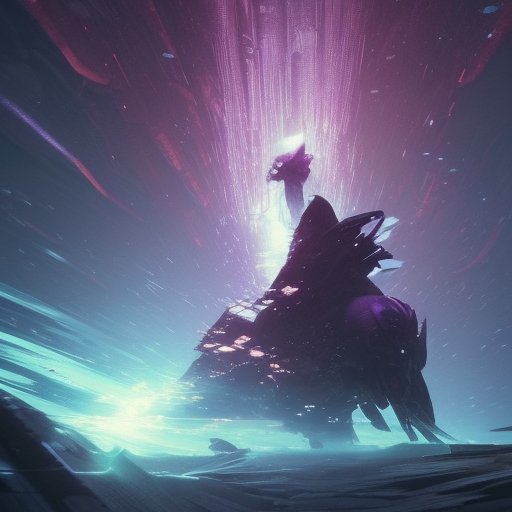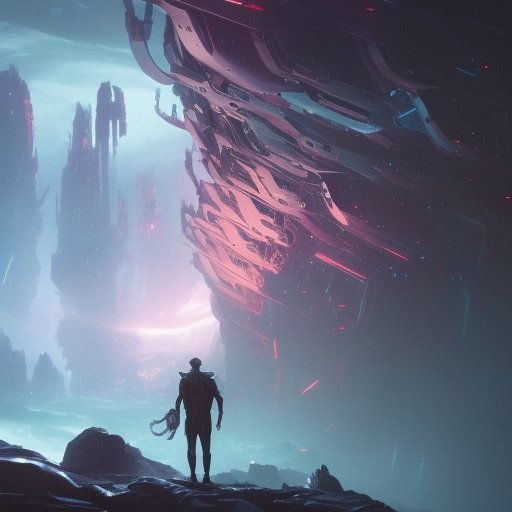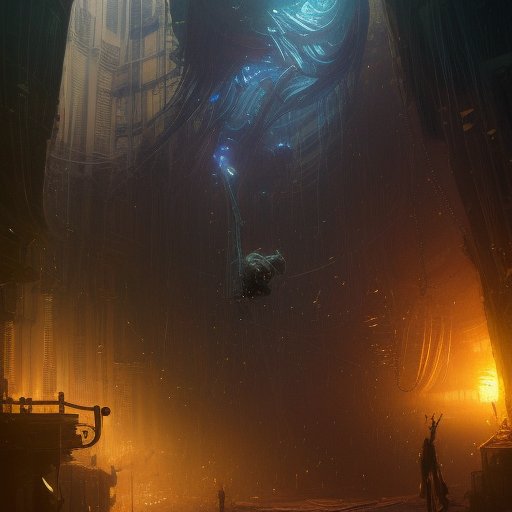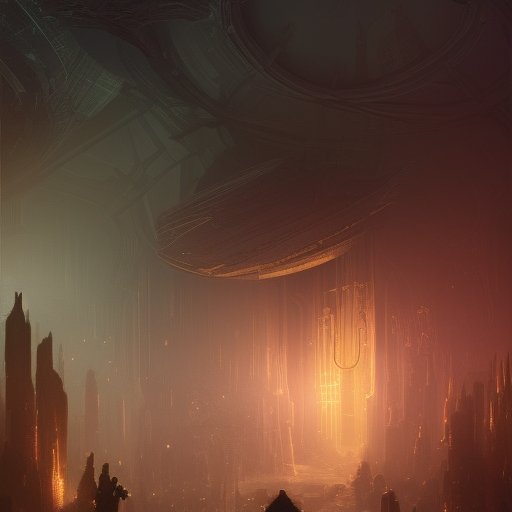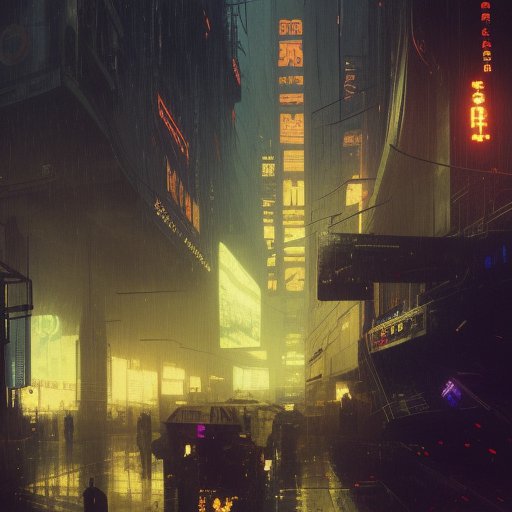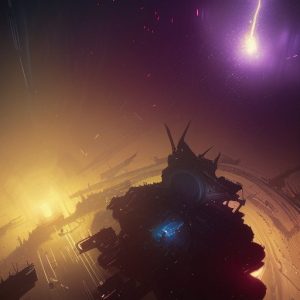
Get ready to buckle up for science fiction reality as we speculate on the inevitable collision of determinism with a free universe. This article explores concepts of determinism and the implications of its collision with free will, potential outcomes, technological advances, ethical considerations, past historical examples of determinism fighting free will in science fiction, and what we can learn from this impending collision. Let’s delve into the unknown and try to anticipate the unpredictable as we examine the mystery of what happens when determinism meets a free universe.
I. Introduction
As we look out into the vast unknown of the universe, it’s hard not to ponder the question of fate. Are we subjects of predetermined destiny, or do we hold the power of our own volition? This age-old philosophical and religious debate that has puzzled the greatest thinkers of our time, may soon be put to the ultimate test as determinism meets a free universe.
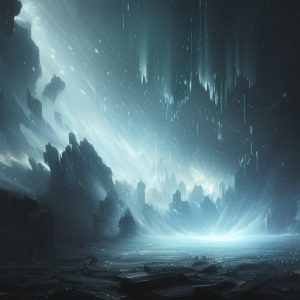
For the uninitiated, determinism refers to the belief that all events, including human behavior and choices, are predetermined by previous causes. This would seemingly suggest that free will is nothing more than an illusion, a mirage created by our own rugged individualism.
However, in a universe that appears to expand indefinitely and contains billions of planetary systems, it’s hard to accept that we exist simply to fulfill some predetermined purpose. The idea that we have the ability to create our own path has been the cornerstone of most science-fiction stories.
But with the advancements in technology that almost let us predict the future, it begs the question: do we have any control over our destinies, or are we all just following the course laid out for us since the beginning of time?
In this article, we’ll explore the implications of the collision of determinism and a free universe. We’ll take a close look at the potential outcomes while also considering the ethical considerations that arise. Finally, we’ll dive into some historical examples from science fiction to see what we can learn from the collision of these two seemingly opposite forces.
Get ready to take a journey through the cosmos and explore the philosophical questions that have puzzled humans since the dawn of time. As determinism meets a free universe, the fate of the multiverse could hang in the balance.
II. Defining determinism and the implications of its meeting with a free universe.
Determinism, my dear readers, has been debated for centuries. It suggests that everything in this universe is predetermined by previous events. If this theory holds, then our supposed free-will is nothing but a farce, a projection of our own self-serving ego.
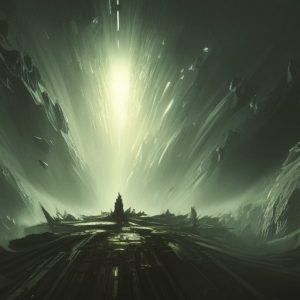
But, what happens when determinism meets a free universe? The outcome could be what defines life as we know it. The implications of such a collision are vast and profound.
Firstly, the entire concept of morality could be up for debate. If humans have no control over their actions, then how can we be held responsible for our choices? Conversely, if we have free will, then who is responsible for the outcomes of our actions? This leads to ethical questions that could shake the very foundations of society.
Secondly, the collision of determinism and a free universe could lead to technological advancements that we have never imagined. Imagine being able to predict the outcome of events with absolute accuracy, or even manipulate the future to a degree.
Thirdly, the intersection of these two forces could fundamentally change the way we understand cause and effect. Could time be shown to be circular, or would we still see a linear progression of events?
III. The Potential Outcomes
The collision of determinism and a free universe could result in multiple outcomes. First, if determinism is in control, then our free will is just a falsehood. It would mean that our choices are not our own, but rather predetermined. It paints a bleak picture of a meaningless existence where we are all just along for the ride.
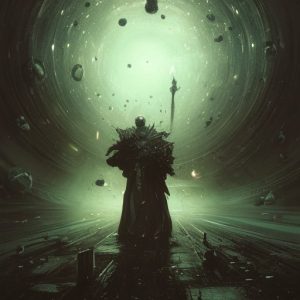
On the other hand, if free will is the victor, then we hold the power to shape our destinies. Imagine a universe where every choice, every action has tremendous weight as it changes the course of our future. This could be a space where every individual has a vast array of possibilities, and the universe blossoms into infinity.
But what if these two collide head-on? A catastrophic event where the control mechanisms of fate and free will cause irreparable damage. Or maybe, a synthesis of sorts, where determinism and free will complement each other. It’s possible we will discover a universe where limited predetermination can coexist with the absolute freedom to choose. This could result in a universe where we hold the power to shape our own destinies, but within the limitations of a set course.
There’s a famous quote that goes something like, “the only thing necessary for the triumph of evil is for good men to do nothing.” If our choices are predetermined, then there’s no point in fighting. This would lead to a world of inaction, where our choices are meaningless, and we become spectators to our own lives.
But if free will is in charge, then we hold the power to change the course of the multiverse. It could be the spark that ignites the flame of change, paving the way towards a better tomorrow. The collision of determinism and free will could be the catalyst for a new space-age where the power of choice reigns supreme.
IV. Technological Advances
With the rapid pace of technological development, we find ourselves on the brink of a scientific revolution. As we stand at the crossroads of determinism and a free universe, we must ask ourselves, can technology help us predict the outcome of this collision?
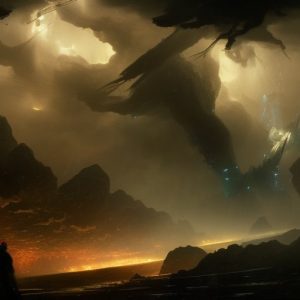
The answer is a resounding maybe. While it’s impossible to predict with absolute certainty the ultimate outcome of this confrontation, our technological advancements could give us a better understanding of the forces at play.
One potential technological solution is the development of a massively powerful supercomputer capable of processing unbelievable amounts of data. By feeding vast amounts of information into this machine, we could gain insights into the nature of determinism and free will. Such a system could help us model potential outcomes of this collision and help us plan for any eventuality.
Another possibility is the use of advanced simulations to recreate the collision of determinism and a free universe. Using the immense processing power of modern computers, we could create virtual environments to test various scenarios and study the interactions of these two opposing forces. These simulations could give us a better understanding of the nature of free will and allow us to make predictions based on the data we gather.
As we develop these technologies, we must also consider the ethical implications of our actions. Predicting the outcome of such a collision could allow us to take steps to prevent harm before it occurs. But it could also lead to the manipulation of free will and the exploitation of those who are deemed to be on the wrong side of this conflict.
Ultimately, the question of whether technology can predict the outcome of this collision remains unanswered. But one thing is for sure: with the pace of technological development, the answer may be closer than we think.
V. Ethical Considerations
As we continue to explore the collision of determinism and free will, the question of responsibility comes to the fore. Who is responsible when we no longer have control over our actions?
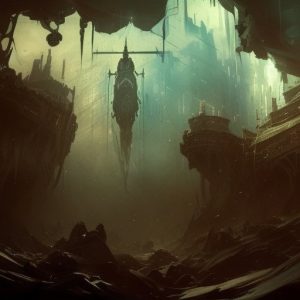
If everything is predetermined, do we still hold accountability for our actions? If our actions are no longer our own, then we cannot be held responsible for the consequences they bring.
Alternatively, if free will prevails, then we have to take responsibility for every choice we make. No longer can we use predetermined fate as an excuse for our actions.
Moreover, if we can predict the outcome of our actions accurately, do we have an ethical duty to choose the best course of action for the greater good? The technological advancements that give us the ability to predict the outcome make this idea more than a mere Orwellian possibility.
Who will control the outcome of these events? Governments, corporations, religious groups? Or will individual human beings have a say in what happens to them and those around them?
The central ethical issue at play here is who decides how we move forward in this grand interplay of determinism and free will? In a world that either succumbs to the forces of fate or sails the seas of pure freedom, who has the power to steer the ship?
As we move toward this inevitable collision, we must consider who will be accountable for the choices we make – both individually and collectively. For if we cannot prevent this collision, we can at least control how we behave when it happens.
VI. Learning from the Past
Exploring historical examples from science fiction can give us a glimpse into the potential outcomes of the collision between determinism and free will. In Ray Bradbury’s classic “Fahrenheit 451,” we see a world where individuality is repressed, and books are banned, leaving the populace void of free will. Similarly, “The Matrix” series shows humanity enslaved and controlled by a computer program. Both of these dystopian tales warn of a future controlled by determinism, where the individual is lost, and free will is nonexistent.
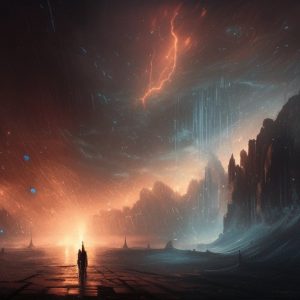
On the other hand, there are stories where free will reigns supreme. In Frank Herbert’s “Dune,” the main character, Paul Atreides, is born with the power of prescience, allowing him to see the consequences of his actions and control his destiny. Meanwhile, “Red Mars” by Kim Stanley Robinson paints a future where colonists to Mars are free from the constraints of earth, allowing them to create their own society free from the determinism of their homeworld.
Science fiction has often been a vehicle for exploring the idea of determinism versus free will. Perhaps one of the most famous examples is “Blade Runner.” In this film, replicants, highly advanced androids, are created with predetermined lifespans and lack the freedom of choice that humans have. By depicting a future where even the most human-like beings can be controlled, Blade Runner raises questions about the potential dangers of letting determinism rule over free will.
In the end, science fiction has given us both cautionary tales and inspiring examples when it comes to the intersection of determinism and free will. As we prepare for the inevitable collision of these two opposing forces, we can look to these stories as a guide and strive to make decisions that will lead us toward a future where free will and determinism can coexist in harmony.
VII. Conclusion
As we come to the end of our journey through the collision of determinism and a free universe, one thing is certain: the implications of this collision are vast and far-reaching. The clash of these two forces could have serious ramifications both ethically and technologically.
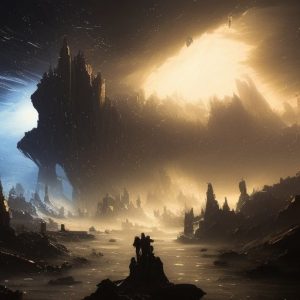
We’ve explored the potential outcomes of this collision, each with its unique set of repercussions. We’ve considered the ethical conundrum posed by the collision, as neither determinism nor free will seems to provide a clear solution. We’ve even taken a look at historical examples from science fiction to glean insights from the past.
Perhaps the most salient point we can take away is the importance of embracing uncertainty. In a universe as vast and complex as ours, there will always be situations that elude even the most advanced predictive techniques. At a certain point, we must accept that the future is not always meant to be determined, and that our free will has a role to play.
Another lesson we might take away is the importance of humility. No matter how advanced our technology becomes, we must remain aware of our limitations. Just because we can predict some outcomes doesn’t mean we can predict them all. And just because we can create certain things doesn’t mean we should.
As we ponder these lessons, one thing becomes clear: the collision of determinism and a free universe is not a battle between good and evil, but rather a complex issue that requires nuance and thoughtful consideration. Only by embracing the uncertainties of the future with an open mind can we hope to navigate our way through the potential consequences of this collision.
So let us embark on this new era of exploration and discovery with an air of caution and optimism, ready to embrace whatever the future has in store.
